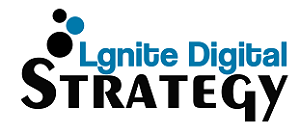In the ever-evolving world of digital marketing, companies continuously seek effective approaches to ensure their sustainability and growth. Among the myriad tactics available, Search Engine Optimization (SEO) stands out as a cornerstone for long-term success. SEO is not just about achieving higher ranks on search engines; it’s about building a sustainable digital presence that drives consistent, organic traffic, enhances brand credibility, and fosters customer loyalty. This article will explore how implementing well-crafted SEO strategies is essential for any long-term marketing plan.
The Essence of SEO in Marketing
What is SEO?
SEO is the process of optimizing a website to rank higher on search engine results pages (SERPs) for relevant keywords. This involves various techniques, including keyword research, content optimization, link building, and improving site usability. An effective SEO strategy ensures that a website is easily discoverable by search engines and users, driving organic traffic without heavy reliance on paid advertising.
Why SEO Matters for Long-Term Success
Unlike short-term marketing tactics that may yield immediate results but quickly taper off, SEO is a marathon, not a sprint. It requires sustained effort and adaptation to ever-changing algorithms, but the rewards are enduring and cost-effective. Effective SEO strategies can maintain a steady stream of organic traffic, which often converts better than traffic from paid sources. This makes SEO an indispensable component of any long-term digital marketing plan.
Key Elements of a Successful SEO Strategy
Comprehensive Keyword Research
Keywords are fundamental to SEO. Conducting thorough keyword research helps identify the terms potential customers use to search for products or services related to your business. Tools like Google Keyword Planner, Ahrefs, and SEMrush provide invaluable insights into search volume, competition, and relevance.
High-Quality Content Creation
Content is king in the world of SEO. Creating high-quality, informative, and engaging content not only attracts visitors but also earns backlinks, which are crucial for SEO. Your content should address the needs and pain points of your target audience, providing solutions and valuable information. Blog posts, how-to guides, case studies, and evergreen content are excellent ways to enhance your site’s visibility and authority.
On-Page SEO
On-page SEO focuses on optimizing individual pages to rank higher and drive more relevant traffic. This includes optimizing title tags, meta descriptions, headers, and images. It also ensures that the content is easy to read and naturally includes relevant keywords. A well-optimized page not only helps with ranking but also improves user experience.
Technical SEO
Technical SEO aims to improve the technical aspects of a website to ensure that search engines can crawl and index it efficiently. This includes optimizing site speed, mobile-friendliness, XML sitemaps, and ensuring a secure (HTTPS) connection. A technically sound website provides a solid foundation for other SEO efforts.
Link Building
Earning high-quality backlinks from authoritative sites is a critical aspect of SEO. Backlinks act as votes of confidence, signaling to search engines that your content is valuable and trustworthy. Strategies for effective link-building include guest blogging, influencer partnerships, and creating shareable content.
Local SEO
For businesses with a physical presence, local SEO is essential. This involves optimizing for local search queries by claiming and optimizing your Google My Business listing, gathering reviews, and ensuring consistency in your name, address, and phone number (NAP) across the web. Local SEO helps attract customers in your vicinity who are searching for your products or services.
Integrating SEO into Long-Term Marketing Strategies
Content Marketing
Content marketing and SEO go hand-in-hand. A robust content marketing strategy involves creating and distributing valuable content to attract and engage your target audience. By integrating SEO into your content marketing efforts, you ensure that your content is discoverable by search engines and valuable to readers, driving organic traffic and fostering brand loyalty.
Social Media Marketing
Though social media signals are not a direct ranking factor, social media marketing supports SEO efforts. Sharing content on social media platforms increases its visibility, drives traffic to your site, and can lead to more backlinks. Active engagement on social media also boosts brand visibility and trust, indirectly supporting your SEO strategy.
Email Marketing
Email marketing can complement your SEO efforts by driving repeat traffic to your website. Including links to your latest blog posts, product pages, or promotional content in email newsletters encourages subscribers to visit your site, increasing engagement and traffic. High traffic and engagement are positive signals to search engines.
Paid Advertising
While SEO focuses on organic traffic, integrating it with paid advertising strategies provides a balanced approach. Use pay-per-click (PPC) campaigns to target high-value keywords while building your organic rankings. Over time, as your SEO efforts start paying off, you can adjust your PPC spend to maximize ROI.
Measuring the Success of Your SEO Strategy
Key Performance Indicators (KPIs)
Tracking relevant KPIs is crucial to gauge the success of your SEO efforts. Important metrics include organic traffic, bounce rate, average session duration, and conversion rate. These indicators provide insight into how well your SEO strategy is driving traffic and engagement.
Using Analytics Tools
Tools like Google Analytics and Google Search Console are indispensable for monitoring SEO performance. Google Analytics helps you track user behavior on your site, while Google Search Console provides insights into how your site is performing in search results, including search queries, click-through rates, and indexing issues.
Adapting and Evolving
SEO is a dynamic field, constantly influenced by algorithm changes and trends. Regularly reviewing performance data and staying updated with SEO best practices will ensure that your strategies remain effective. Be prepared to adapt and evolve your tactics in response to new developments in the SEO landscape.
Real-World Success: Case Studies in SEO
E-Commerce Business Growth
Consider the experience of an e-commerce business struggling to compete in a saturated market. By implementing a comprehensive SEO strategy that included keyword optimization, high-quality content creation, and technical SEO improvements, the business saw a 40% increase in organic traffic over six months. This rise in traffic led to higher conversions and a significant boost in revenue.
Local Business Visibility
A local restaurant aiming to attract more customers optimized its online presence through local SEO. By claiming and optimizing its Google My Business listing, encouraging customer reviews, and ensuring consistent NAP information, the restaurant saw a 50% increase in organic search visibility. This visibility translated to more foot traffic and reservations, enhancing the restaurant’s reputation and revenue.
The Future of SEO in Long-Term Marketing
Voice Search Optimization
With the rise of voice-activated assistants like Siri, Alexa, and Google Assistant, optimizing for voice search is becoming increasingly important. Voice search queries are often longer and more conversational, requiring a focus on natural language and question-based keywords.
Artificial Intelligence and Machine Learning
Search engines are increasingly leveraging AI and machine learning to deliver more relevant search results. Understanding and adapting to these technologies enhances your SEO strategy. For instance, Google’s RankBrain algorithm uses machine learning to understand the intent behind search queries, rewarding content that satisfies user intent.
Mobile-First Indexing
As most searches are now conducted on mobile devices, optimizing for mobile-first indexing is essential. Ensure that your website is responsive, fast, and offers a seamless user experience across all devices. Google prioritizes mobile-friendly sites in its rankings, making this a critical factor for SEO success.
Personalized Search
The future of SEO is heavily leaning towards personalization. Search engines are becoming adept at delivering personalized search results based on user behavior, location, and preferences. This requires marketers to create more targeted and personalized content, enhancing the user experience and boosting engagement.
Practical Tips for Implementing SEO in Your Long-Term Strategy
Understand Your Audience
Knowing your target audience is fundamental. Conduct market research to understand their needs, preferences, and search behaviors. Tailor your SEO strategy to address these insights, ensuring your content is relevant and engaging.
Create Quality Content Consistently
Consistency is key in SEO. Regularly update your website with high-quality content that addresses current trends and topics in your industry. Use a content calendar to plan and schedule posts, ensuring a steady flow of fresh content that keeps your audience engaged and coming back for more.
Optimize for Local Search
If your business serves a local community, optimize your site for local search. Ensure your Google My Business profile is claimed and fully optimized. Encourage satisfied customers to leave positive reviews and ensure that your business information is consistent across all online directories.
Monitor and Analyze Performance
Regularly monitor your SEO performance using tools like Google Analytics and Google Search Console. Analyze the data to identify what’s working and what needs improvement. Adjust your strategy based on these insights to continually refine your approach and achieve better results.
Stay Updated with SEO Best Practices
SEO is an ever-changing field. Stay informed about the latest algorithm updates and best practices. Join SEO communities, attend webinars, and follow industry blogs to keep your knowledge up-to-date. Continuous learning and adaptation are essential for long-term SEO success.
Conclusion
Incorporating SEO https://www.webmetricpro.com/ into your long-term marketing strategies is not just beneficial; it’s essential for sustainable growth and online success. By understanding the core elements of SEO and integrating them with other marketing tactics, you create a robust foundation that drives organic traffic, improves brand credibility, and fosters customer loyalty. The dynamic nature of SEO requires continuous learning and adaptation, but the benefits are well worth the effort.
Whether you are a small business owner or a marketing professional, leveraging the power of SEO can propel your brand to new heights. Invest in a holistic SEO strategy today and watch as it delivers long-term benefits, ensuring your digital presence remains strong and competitive in the years to come.









